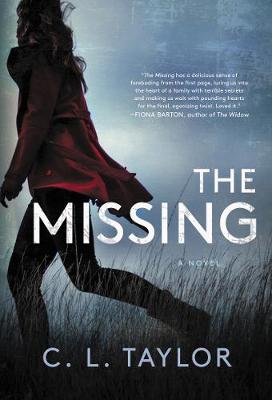
Jane
Written on Oct 18, 2017
This book was a whirlwind of a whodunit—a roller coaster of events and emotions; every time I thought I had things figured out, the plot thickened and the cart jerked me in another direction. One by one, secrets within the family are revealed, resulting in unreliable narrator and mother, Claire, struggling to figure out who she can trust—herself included.
It was a stressful ride for me to read, because I'm not familiar with British slang/lingo/etc., and Urban Dictionary is great and all, but Google Search can only pull up so much. So I had to guess and assume a lot of the time what was being said, and I'm thankful to have watched all seasons of E4's Skins, because I doubt I'd have gotten as far as I had had I not watched it (I've watched it four times, heh #obsessed).
I think this was a good book, but there are some things I wasn't too fond of:
Claire's greatest fault is that she is an unreliable narrator, but I don't feel it should count toward faults and developing from them in a not-Mary-Sue way of speaking, because everyone else has had to acknowledge shitty things they did, whereas she basically sat there expectantly, as if she was a saint. Beyond her blackouts, she has nothing she has had to acknowledge for fault.
As a result, she constantly attacks people around her—she has one of those freakishly obsessive personalities you can't talk a person out of to make them realize, because she's so far off from it. I understand her son has gone missing, but in numerous other fictional stories—and then in the nonfictional stories—regarding abduction, therapists have often acknowledged this obsessive personality and offered up treatment/emergency plans for when it happens.
I was disappointed in the conclusion due to this St. Claire attitude. To me, it wasn't fair that the mother was portrayed as a do-no-harm persona whilst everyone around her walked on eggshells.
I grew to dislike Claire for the reasoning above. At the end of the day, she's not super likeable, and she doesn't seem grateful to have the support network she has.
Claire prayed to a god she doesn't believe in. She prayed to him, she thanked him—and all for what, exactly? I don't understand the purpose of praying to God in passing, as if nothing is meant by it despite relying heavily on God to answer those prayers. It really rubbed me the wrong way when I learned this in the last few pages and changed the saving grace that was keeping me from flat-out disliking Claire, because I thought that she'd at least had hope or something—that, if she kept to her faith during this time, if she believed in something during this whole time, then she wasn't being a total hypocrite.
I'll admit I enjoyed reading about a character who experienced dissociation, though it is not quite the same as what I have experienced. After she exited a fugue state, something that was never mentioned after she did it was the use of a name other than her own, Kate Sawyer, which made me think that perhaps dissociative personality disorder was going to be addressed (I was gonna be all excited!). I suppose it was given for anonymity, but regardless: she mentioned nearly everything else, so why not this? To me, it just added more to her unreliability and made me question whether I could trust her at all—I mean, can we? Can we really trust that the story Claire has told us is what happened?
I guess that, because of this lacking (i.e. a flaw to acknowledge and develop towards the end), I feel more indifferent about this book than I'd have liked. She was in everyone's business. She didn't have that epiphany most multidimensional characters have. I kept turning page after page after I got into it, but the more familiar I became with Claire, the less I wanted to be in her life.

